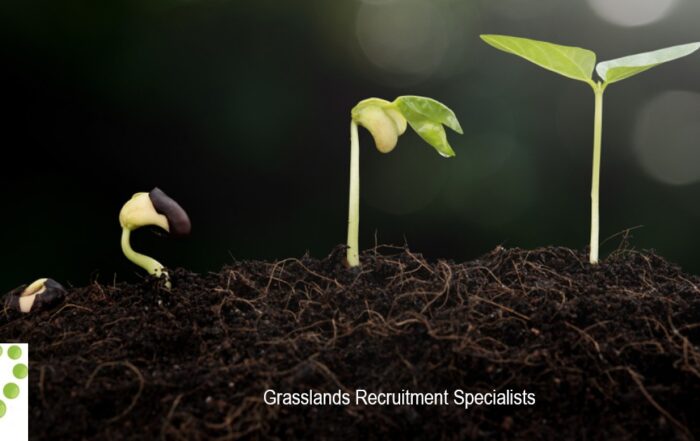Artificial intelligence (AI) is revolutionizing industries across the globe, and agriculture is no exception. While many associate AI in agriculture with farming technologies like autonomous tractors and crop monitoring, its impact extends far beyond the fields. From supply chain optimization to precision agri-tech solutions, AI is creating new opportunities for career seekers in unexpected areas of the agriculture industry.
Here’s how AI is reshaping the job market in agriculture and what it means for aspiring professionals.
The Pros: Opportunities Created by AI in Agriculture
- Data-Driven Decision Making
AI is transforming how agricultural businesses manage operations. Roles like data analysts and AI specialists are becoming essential for interpreting data from supply chains, distribution networks, and market trends. For example, AI-powered platforms help agribusinesses optimize inventory, predict consumer demand, and reduce waste. - Food Safety and Quality Control
AI-driven technologies are enhancing food safety through advanced monitoring systems. Careers in food quality assurance and AI-supported inspection are emerging to ensure compliance with regulations, detect contamination, and improve overall product quality. AI is helping companies improve efficiency while maintaining the highest standards. - Sustainability and Resource Management
AI is at the forefront of sustainability efforts in agriculture. Careers focused on environmental compliance, carbon accounting, and resource optimization are growing. Specialists use AI tools to analyze soil health, water usage, and greenhouse gas emissions, helping agribusinesses adopt eco-friendly practices and meet sustainability goals. - AI in Agribusiness and Marketing
Agriculture-focused marketing and business development roles are being transformed by AI. Professionals are leveraging AI to create predictive models, analyze consumer behavior, and fine-tune marketing strategies. These innovations help companies tailor their products and services to meet the demands of a changing market. - Advanced R&D Opportunities
AI is accelerating research and development in areas like plant genetics, pest management, and alternative proteins. Jobs in R&D are expanding as companies use AI to identify better breeding strategies, develop bioengineered solutions, and explore sustainable food production methods.
The Cons: Challenges AI Brings to the Job Market
- Skill Gaps in Technology and Analytics
The rapid integration of AI means many professionals in agriculture lack the technical skills needed to adapt. This creates a growing demand for training programs and certifications to prepare workers for AI-based roles in analytics, programming, and AI platform management. - Job Displacement in Traditional Roles
As AI takes over repetitive tasks like equipment maintenance scheduling, supply chain tracking, and even laboratory testing, some traditional roles may be at risk. This shift emphasizes the need for professionals to upskill or transition into new roles where human expertise remains essential. - High Barriers to Entry for Advanced Roles
Roles that involve AI implementation or data management often require specialized education and experience. Career seekers without a strong foundation in technology or data science may find it challenging to enter these fields. - Ethical and Regulatory Concerns
The adoption of AI in areas like genetic modification, environmental monitoring, and data collection brings ethical and regulatory challenges. Professionals in this space need to navigate these complexities, often requiring expertise in compliance and ethics alongside technical skills.
How Career Seekers Can Adapt to AI in Agriculture
- Develop Technical Skills
Invest in skills like data analysis, programming, and familiarity with AI tools. Certifications in AI, machine learning, or agricultural technology can boost your employability. - Explore Emerging Roles
Look for opportunities in areas like AI-powered logistics, food safety, or sustainability consulting. These fields are growing rapidly and require a mix of technical and domain-specific expertise. - Focus on Human Expertise
While AI can process data, human insight is still crucial for decision-making. Develop transferable skills like critical thinking, problem-solving, and leadership, which remain essential in an AI-driven world. - Stay Informed on Industry Trends
AI in agriculture is evolving quickly. Follow industry news, attend conferences, and engage in professional networks to stay updated on the latest innovations and career opportunities.
The Future of AI in Agriculture
AI is not just revolutionizing farming—it’s reshaping the broader agricultural ecosystem. From food safety to supply chain management and sustainability, AI is creating exciting opportunities for career seekers with the right mix of skills and adaptability. By embracing lifelong learning and exploring the intersection of technology and agriculture, you can position yourself at the forefront of this dynamic industry.
Share This Story, Choose Your Platform!
Creating a Culture of Growth: How Ag Employers Can Support Continuous Learning
In today’s agricultural labour market, hiring strong talent is only half the battle. The employers who stand out are those who make growth part of their culture, not just part of their job postings. High-performing READ MORE-->
Mission vs. Money: What Truly Motivates Agricultural Professionals?
For many agricultural professionals, career decisions are rarely just about the paycheque. While compensation matters, long-term satisfaction often comes from something deeper: purpose, alignment, and the feeling that your work actually matters. In an READ MORE-->

